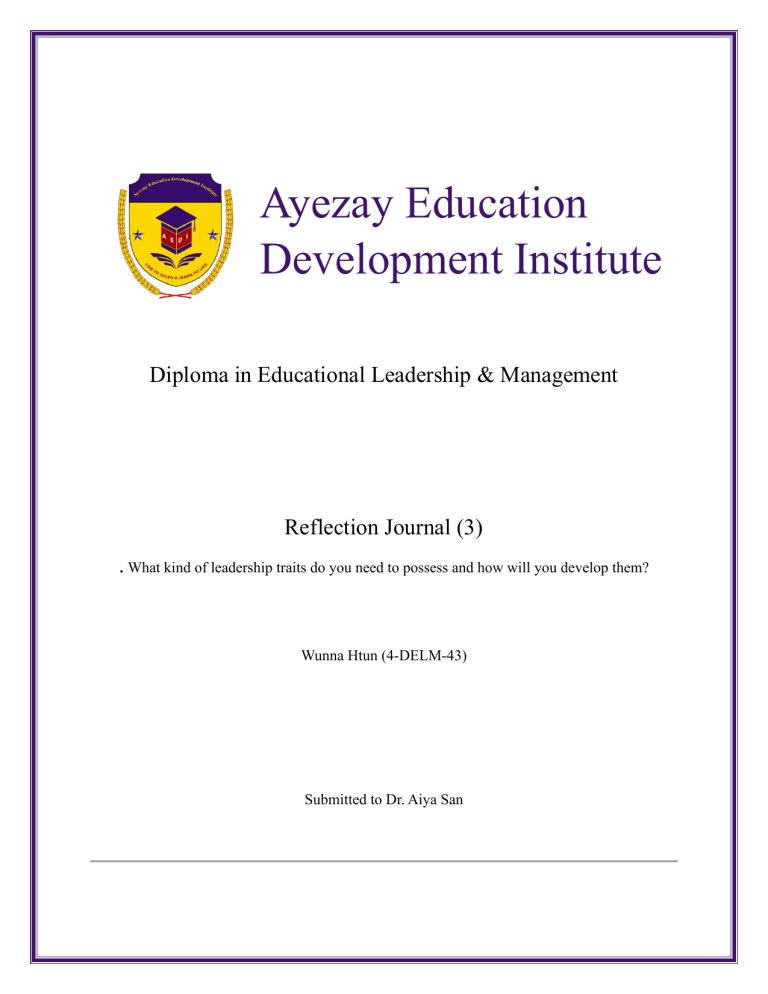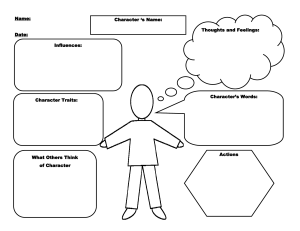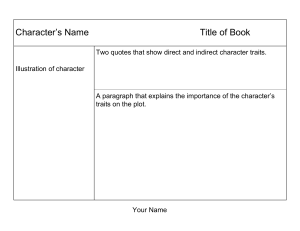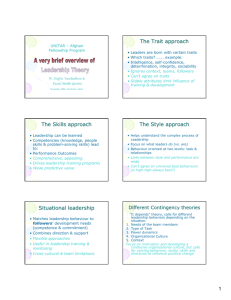
Ayezay Education Development Institute Diploma in Educational Leadership & Management Reflection Journal (3) . What kind of leadership traits do you need to possess and how will you develop them? Wunna Htun (4-DELM-43) Submitted to Dr. Aiya San Introduction Leadership is not just about holding a position of authority; it is about inspiring and influencing others to achieve common goals and bring about positive change. As an aspiring educational leader, my philosophy revolves around servant leadership, where leaders prioritize the needs of their followers and empower them to reach their fullest potential. This philosophy resonates with the Great Man Theory's emphasis on essential leadership traits such as adaptability, assertiveness, trustworthiness, understanding followers' needs, and people skills. In this reflection, I will explore these traits and outline my plans to develop them to become an effective educational leader. The Traits In our recent lecture, we delved into the Great Man Theory, which highlighted essential leadership traits. Reflecting on this theory, I realize the importance of cultivating these traits as an aspiring educational leader. Adaptability One of the crucial traits of a leader is the ability to adapt to changing circumstances. In the dynamic field of education, situations can evolve rapidly. Being adaptable allows a leader to navigate challenges effectively and make informed decisions. To develop this trait, I will engage in continuous learning, embrace new ideas, and seek feedback to adapt and evolve. Assertiveness A leader needs to be assertive to communicate their vision clearly and motivate others towards shared goals. Assertiveness does not mean being aggressive but rather being confident and decisive. I plan to practice assertiveness by setting clear expectations, providing constructive feedback, and standing firm on important decisions while respecting others' opinions. Trustworthiness Building trust is fundamental in leadership. As an educational leader, I aim to foster an environment where trust is nurtured through transparency, integrity, and consistency. I will work towards being reliable, honest, and accountable in my actions to earn the trust of my team and the broader educational community. 2|Page Understanding the Followers and Needs Effective leadership involves understanding and empathizing with followers' perspectives and needs. By actively listening and engaging with students, teachers, and stakeholders, I will gain insights into their concerns, aspirations, and expectations. This understanding will guide me in making inclusive and informed decisions that resonate with the community's values and goals. People Skills Interpersonal skills are vital for building positive relationships and collaborating effectively with others. I will focus on improving my communication, empathy, and conflict resolution skills. By fostering open dialogue, showing empathy, and resolving conflicts constructively, I aim to create a supportive and harmonious educational environment. Conclusion In conclusion, developing these leadership traits is a continuous journey that requires selfawareness, commitment, and practice. As I progress in my studies and career in educational leadership and management, I will strive to embody these traits to inspire and empower others towards excellence in education. 3|Page



